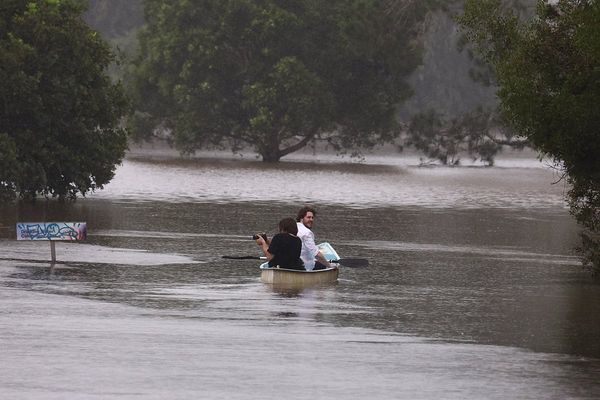
The physician-writer Abraham Verghese’s riveting, sprawling epic opens with a mother and her 12-year-old daughter crying. It is 1900 in Travancore, south India, today part of Kerala, and in the morning, the frightened girl is to marry a man who is 40 and a widower. She will do as she is told but she cannot imagine the future ahead. Her mother reassures her but soon her voice ebbs, her breathing slows, and then she is asleep, leaving her daughter awake. The body’s need for rest overtakes the mother’s anguish. And we are thus ushered into the next day and the girl’s journey on a boat far from her childhood home.
Big Ammachi, as the girl will come to be known, will grow to love her husband; he, in turn, will treat her like the child she is for several more years. By the time she is 17, she will give birth to her first child, a daughter named Baby Mol. They live on their estate, Parambil, the labour handled dutifully by a man named Shamuel, who is part of the landless caste called the pulayan. Big Ammachi eventually has a son, Philipose, and he and Shamuel’s young son, Joppan, are playmates, but when a school official prohibits Joppan from attending class, Big Ammachi finds herself struggling to explain the caste system that is forcing the friends to live increasingly segregated lives. “Its roots are deep and so ancient that it feels like a law of nature, like rivers going to the sea. But the pain in those innocent eyes reminds her of what is so easy to forget: the caste system is an abomination.” Decades later, Philipose and Joppan will have uncomfortable conversations about what is owed by landowners to the pulayan, but any lingering anger that Joppan might have is put off for another generation.
Spanning from 1900 to 1977 in Kerala, The Covenant of Water reveals some of the contradictions of living in a colonised, segregated society. Dr Digby Kilgour, the lonely son of an impoverished alcoholic mother, flees Scotland for colonised India, only to discover that he is “oppressed in Glasgow; oppressor here. The thought depresses him.” Yet the complicated questions that might develop as he negotiates with those increasingly fraught realities are set aside while he contends with his new hospital job and begins an affair with a woman who is married to a colleague. Tensions rise as that colleague makes a fatal medical error and places the blame on Digby. Any confrontation that would have occurred, however, is derailed by an accident that conveniently pushes Digby’s storyline in another direction.
Big Ammachi watches her family expand and shrink through births and tragic deaths that involve a family curse connected to water. India gains independence. Her granddaughter, her namesake, enters medical school and tries to find the cause for this curse. Other characters make their appearance and multiple plotlines converge through encounters that rely heavily on coincidence and sudden incidents. Over the course of the book, people do not change as much as accumulate and shoulder new experiences.
The psychological and emotional growth that could have fostered deeper understandings and greater revelations remains unexplored. Verghese chooses instead to reckon with biological realities: disfiguring scars and developmental challenges, incurable afflictions and hereditary diseases, fatal accidents and debilitating addictions. The novel’s authority lies not in the excavation of psychological ambiguities, but in the dawning awareness that each character is beholden to something much more powerful and more encompassing than emotional turmoil: the physical bodies they inhabit.
This is a novel – a splendid, enthralling one – about the body, about what characters inherit and what makes itself felt upon them. It is the body that contains ambiguities and mysteries. As in his international bestseller Cutting for Stone, Verghese’s medical knowledge and his mesmerising attention to detail combine to create breathtaking, edge-of-your-seat scenes of survival and medical procedures that are difficult to forget. Tenderness permeates every page, at the same time as he is ruthless with the many ways his characters are made vulnerable by simply being alive. Those scenes when a person must fight for their life make for some of the most gripping episodes that I have read in some time.
At the beginning of the book, Big Ammachi, the young bride, looks out at her new home. It is “a child’s fantasy world of rivulets and canals, a latticework of lakes and lagoons, a maze of backwaters and bottle-green lotus ponds; a vast circulatory system because, as her father used to say, all water is connected”. This concept of connectedness, the sense of family that can extend to those unrelated by blood, is carried through nearly every chapter of this novel. “This is the covenant of water,” a character thinks towards the end, “that they’re all linked inescapably by their acts of commission and omission and no one stands alone.”
The Covenant of Water contains a larger question of community and belonging, one that feels most important in these days of escalating political wars and tensions: is it possible to be fragile and wounded, and still necessary and loved? The answer is rendered with care by a writer who looks at the world with a doctor’s knowing, merciful gaze. As much as any moral reckoning or catastrophic plot point, this is why literature, in all its comforting and challenging forms, matters.
• Maaza Mengiste’s The Shadow King (Canongate) was shortlisted for the Booker prize. The Covenant of Water by Abraham Verghese is published by Grove (£20). To support the Guardian and Observer, order your copy at guardianbookshop.com. Delivery charges may apply.







